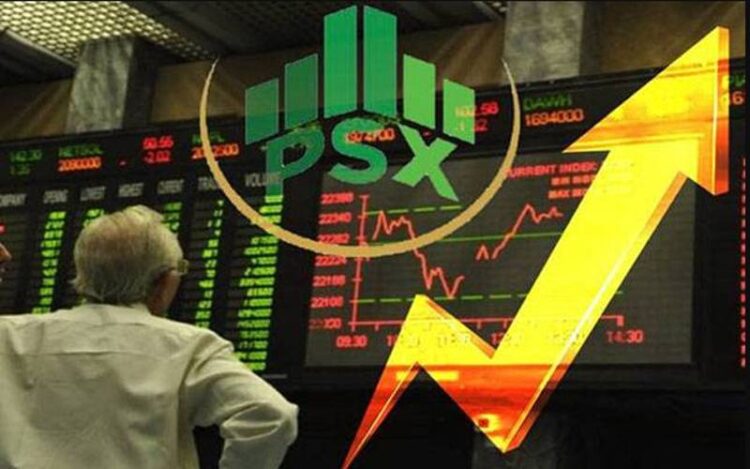A bullish trend was observed in the Pakistan Stock Exchange (PSX) on Thursday from the start of trading, pushing the benchmark KSE-100 Index past the historic 131,000 mark for the first time in the country’s history.
During trading, the index at one point soared to a record high of 131,325.10 points.
At 10:50 AM, the benchmark index had climbed by 401.72 points or 0.31%, reaching 130,745.75 points.
The energy sector showed strong buying activity, with stocks like OGDC, Mari, PPL, PSO, and Wafi performing positively.
According to analysts, the market’s record-breaking surge is driven by aggressive institutional buying, strong profit expectations, and positive economic indicators.
It is worth noting that on Wednesday, the Pakistan Stock Exchange made historic progress, surpassing the psychological barrier of 130,000 points for the first time. The benchmark KSE-100 Index closed at 130,344 points with a gain of 2,144 points or 1.67%.
Globally, Asian stock markets recorded slight gains on Thursday as investors awaited key U.S. employment data, which could justify a potential interest rate cut by the Federal Reserve. Investors were also watching for approval of a massive tax and spending bill in the U.S. Congress.
On Wall Street Wednesday night, markets closed at new record highs after President Donald Trump announced a trade agreement with Vietnam, including a 20% tax on U.S. imports. This development raised expectations of further trade deals being finalized soon.
MSCI’s broadest index of Asia-Pacific shares outside Japan rose by 0.2%, trading near a four-year high, while Japan’s Nikkei Index remained largely stable.
China’s blue-chip stocks rose by 0.2%, while Hong Kong’s Hang Seng Index fell by 0.6%, as new data showed China’s services activity in June grew at its slowest pace in nine months.
In Asia, Nasdaq futures and S&P 500 futures showed slight changes. Investors were waiting for the U.S. House of Representatives to approve President Trump’s major tax and spending bill to pave the way for its final implementation.
It is expected that the bill will add $3.3 trillion to the national debt, significantly cut taxes, and reduce funding for social security programs.





















